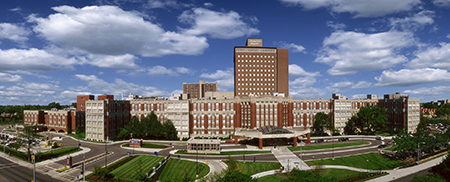Brain surgery for patients with otherwise hard-to-treat epilepsy, a disorder that causes seizures, is effective for up to 15 years, according to a new study from Henry Ford Hospital in Detroit.
“These encouraging findings will be valuable during the decision-making process and counseling on different aspects of care in patients with epilepsy,” says Dr. Vibhangini S. Wasade, a neurologist at Henry Ford Hospital and lead author of the study, which was published in the upcoming February issue of Epilepsy & Behavior.
As part of the survey, researchers contacted more than 250 patients who had a portion of their brains surgically removed, or resected, to treat localization-related epilepsy at Henry Ford Hospital from 1992 to 2011.
“Most previous studies looked at seizure and psychosocial outcomes at 2 to 5 years after surgery, and a few for up to 10 years,” Wasade says. “We aimed to assess the long-term outcomes — up to 15 years — at our epilepsy center.”
Of those surveyed, 92 percent considered the epilepsy surgery worthwhile. Thirty-two percent said they were seizure-free, and 75 percent had favorable results.
“We found that 35 percent of patients drove before surgery and 51 percent drove after their procedure – a statistically significant increase,” Wasade says.
However, researchers found that there was a decrease in full-time employment status from before to after epilepsy surgery,” Wasade says. “This could be due to relative aging of the surveyed patients, who were comparatively older and undergoing surgery at a later age. About 7 percent were retired, and 35 percent were not employed for reasons other than seizures.”
These included limited education and job training due to longstanding epilepsy or limited employment opportunities due to hard economic conditions at the time of the survey.
The survey also found an increase in the use of antidepressants, which Wasade says may indicate continuing depression symptoms present before surgery, other ongoing illness, depression as a side effect of anti-epilepsy drugs, or better clinical recognition of epilepsy-related depression when compared to past years.






